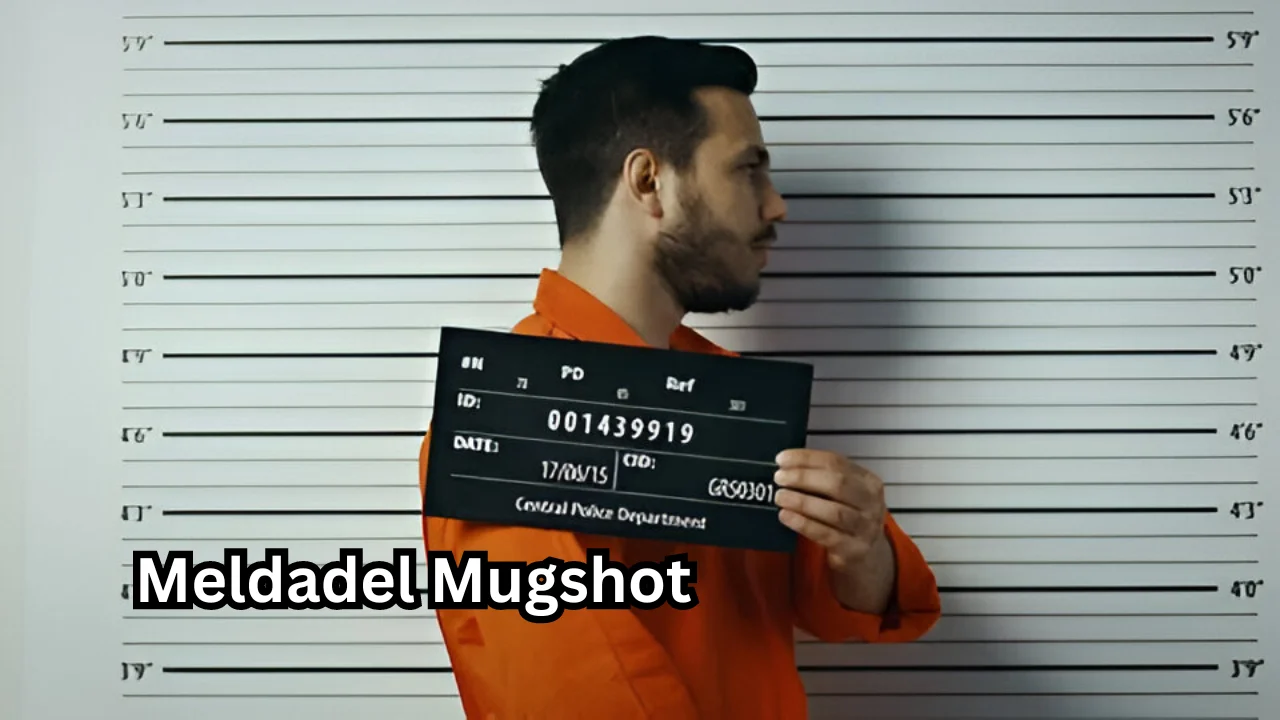In the digital age, the growth of public records and online visibility has greatly transformed how people view reputation, privacy, and fairness. A recent event that has drawn public interest is the Meldadel mugshot situation. The debate over Meldadel’s arrest and the release of their mugshot has sparked significant interest, criticism, and speculation on social media and news outlets. This piece seeks to offer a thorough and carefully studied summary of the circumstances, dissecting the main components and exploring the wider consequences on legal, social, and individual fronts.
What is the Meldadel Mugshot Case?
The phrase “Meldadel mugshot” denotes the official photograph taken by authorities at the time of Meldadel’s recent arrest. Although numerous mugshots are shared on public record sites quietly, this specific photo has generated significant online attention. Meldadel, allegedly linked to an undisclosed legal issue, was arrested and handled by law enforcement, and the mugshot was later posted on a publicly available site.
The circumstances surrounding the arrest are unclear because of ongoing inquiries. Nonetheless, whispers and conjectures swiftly occupied the information gap, generating viral stories that frequently strayed from verified truths. The spread of the mugshot on social media, tabloids, and search engines sparked discussions regarding ethics, legality, and media accountability.
Public Visibility and Internet Mugshot Culture
Over the last twenty years, mugshots have turned into an internet sensation. Many websites share these images, referencing public curiosity and legal openness. Nonetheless, the publication of Meldadel’s mugshot sparked renewed conversations regarding the ethical limits of these actions. The distinction between public information and character defamation becomes unclear when mugshots surface in search results prior to any confirmed conviction.
In Meldadel’s situation, the online visibility led to social stigma, speculation about the supposed offense, and even harassment. Numerous critics contend that platforms publishing mugshots capitalize on legal troubles to generate traffic and advertising income. Meldadel’s picture, lacking contextual details or a legal ruling, quickly turned into a target for mockery and criticism.
Legal Status and Allegations Against Meldadel
When the mugshot was released, the specific legal charges against Meldadel were not made public. Speculation ranged significantly—from slight offenses to serious criminal claims—but law enforcement authorities have yet to issue any official statements outlining the charges. This absence of clarity only heightened online speculation and harmed Meldadel’s digital standing even more.
Reports suggest that the case is currently being reviewed by the court and that additional information may emerge as formal proceedings progress. Until that time, all assertions regarding the incident ought to be viewed with doubt, since no judgment has been rendered.
Effect on Meldadel’s Image and Professional Journey
A significant consequence of public mugshots is the lasting harm to a person’s reputation. In the current hyper-connected world, one image can lead search engine results and influence public opinion for years. Meldadel, previously not widely recognized, has now become linked to controversy, irrespective of the legal results.
This undesired notoriety can obstruct job prospects, personal connections, and social engagements. Even if exonerated, the mark of a mugshot can persist permanently, as search engine indexing typically maintains these images in high positions.
Mugshots and Privacy Laws: A Grey Legal Zone
The legality of releasing mugshots differs between jurisdictions. In certain states and nations, mugshots are deemed public domain and can be distributed without restrictions. In some places, regulations limit the distribution and use of such images. The Meldadel mugshot incident underscores the ambiguities and contradictions in privacy laws.

In reaction to rising public worries, numerous jurisdictions have enacted “mugshot laws” intended to control the usage of arrest images. Certain legal changes now prevent the publication of mugshots unless there is a conviction, whereas others permit individuals to request the removal of their photos under specific circumstances. These regulations are still developing, and instances like Meldadel’s keep challenging their limits.
The Impact of Social Media on Increasing Mugshot Visibility
Social media sites were essential in the rapid dissemination of Meldadel’s mugshot. Just hours after its launch, the image spread rapidly on Twitter, Facebook, Reddit, and TikTok. Influencers and content creators provided commentary, memes, and baseless accusations, transforming the case into a sensational narrative disconnected from legal facts.
This issue prompts immediate worries regarding misinformation, online harassment, and the moral implications of “trial by internet.” In the absence of regulatory oversight, digital platforms turn into hotspots for character attacks, frequently leaving those involved in viral controversies with minimal or no means to defend themselves.
Public Reaction and Online Backlash
The public reaction to the Meldadel mugshot was mixed. Certain users raised worries regarding the person’s privacy and the risks associated with sharing incomplete information. Some people engaged in speculation, humor, and memes, adding to a broader culture of desensitization regarding legal and emotional trauma.
This event highlights how the internet can blow a personal crisis into an international spectacle, regardless of the facts or circumstances. It likewise mirrors the increasing societal interest in downfall stories and criminal intrigue.
Initiatives for Image Deletion and Online Reputation Restoration
Following the incident, individuals affiliated with Meldadel have allegedly begun actions to eliminate the mugshot from online platforms and search engine results. In these situations, companies specializing in reputation management are frequently engaged to enhance online visibility, mitigate negative outcomes, and elevate positive information.
Legal options, such as DMCA takedown requests and privacy law petitions, are also under consideration. The effectiveness of these initiatives relies on local regulations, collaboration at the sites, and the degree of image distribution.
How to Protect Yourself from Mugshot Exploitation
The Meldadel mugshot issue highlights the necessity for active digital safeguarding. Here are several practical steps that people might take into account:
Regularly check your digital footprint with tools such as Google Alerts.
Steer clear of unofficial sites that gain from personal information.
Reach out to legal assistance or privacy experts if your image or personal information is misused.
Advocate for legal changes that safeguard online privacy and control the use of mugshots.
Final Thoughts
The Meldadel mugshot situation goes beyond a viral photo; it symbolizes contemporary society’s challenges with privacy, reputation, legality, and online culture. As legal processes unfold behind the scenes, the public narrative has evolved independently, driven more by algorithms and viral content than by facts or fairness.
Governments, platforms, and citizens must urgently reevaluate the equilibrium between transparency and empathy in the digital era. Only by fostering significant conversations, ensuring legal transparency, and upholding ethical accountability can we avert future situations like this from escalating beyond control.
